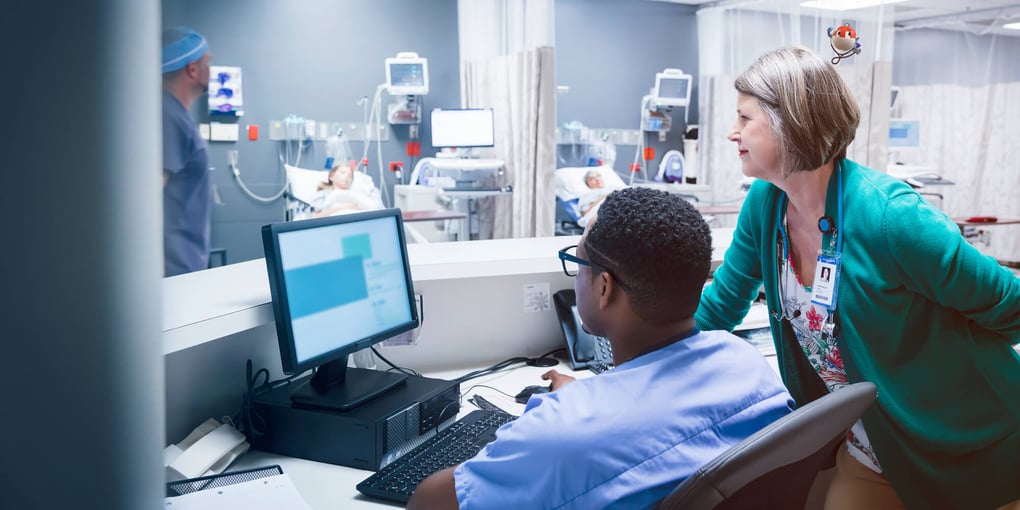
Client:Shinshu University Hospital
Shinshu University Hospital Standardized Accounting Decisions with UiPath AI Center

4,559
Number of hours saved in the first two years
66%
Less cost to start compared to other AI solutions
123
Number of hours to create AI for accounting
Client Overview
Shinshu University Hospital is based in Nagano Prefecture, Japan. It offers advanced medical treatment with great transparency and compassion to provide the best possible treatment. By training the next generation of medical staff to possess an international outlook, Shinshu University Hospital aims to develop future medicine and medical treatments, and disseminate the results nationally and internationally.
At Shinshu University Hospital, the RPA Promotion Office has found a way to standardize accounting data entry using artificial intelligence (AI). By using AI to reduce the degree of human decision-making, workflows are more efficient. They also follow reporting standards set by the Ministry of Health, Labor, and Welfare.
Automation is playing an increasingly important role at Shinshu University Hospital. Drawing from lessons learned applying robotic process automation (RPA), the hospital’s RPA Promotion Office is applying artificial intelligence to remove the guesswork from designating accounting codes. The goal is to create an integrated, AI-powered accounting system that's more efficient and regulatory compliant.
Shinshu University Hospital is no stranger to RPA. This hospital, which is the central medical care facility for Japan’s Nagano Prefecture, has been using UiPath RPA to automate administrative tasks since 2018. The hospital’s RPA Promotion Office was established in May 2020 to expand automation to make staff more efficient and help standardize operations across departments.
“With the pandemic, the work related to coronavirus countermeasures has increased along with the daily burden on medical professionals. We were able to reduce the overall workload by using RPA operations.” Yasuhiro Shiraki, RPA Promotion Office, Shinshu University Hospital
Thanks to RPA, the hospital saved 4,559 work hours per year by the end of 2020. The next step was to incorporate AI.
Adding AI to RPA for Accounting
Once RPA had proven itself as a valuable tool for hospital operations, Shiraki determined that AI and RPA would be a powerful combination for hospital accounting. His initial attempts at adapting AI for accounting were frustrating. It proved difficult to design a system with the versatility needed to handle complex accounting operations. It wasn’t easy to create a workflow that could recognize processes and correctly assign the next task. Plus, the cost of software licensing and training made implementation expensive. Then he heard about UiPath AI Center™ in February 2021.
“I was surprised by the low cost of AI Center,” Shiraki said. “It was an advantage to start at one-third the cost of the other AI products. In addition, having classification models such as language learning and images were valuable features. It was also attractive since the AI would integrate with existing UiPath RPA processes. We didn’t have to waste effort since we could implement AI right away by inserting it into an existing RPA workflow.”
Shiraki also was impressed by the versatility of AI Center, and the library of AI models developed by other AI Center users. The resources available were a deciding factor and made it easy to start using AI Center.
Using AI to standardize hospital accounting
The impetus for adopting AI to power accounting was to standardize journal code entries. In Japan, healthcare providers need to conform to Hospital Accounting Rules established as accounting standards to optimize operations, standardize auditing, and improve management. The Hospital Accounting Rules are also the standard used to prepare financial statements for the Ministry of Health, Labour, and Welfare. Any errors in record-keeping mean retroactively correcting all the financial statements for the fiscal year.
The Hospital Accounting Rules are complex and detailed, which makes accurate manual data entry problematic. An additional challenge is that contract workers usually complete the paperwork.
“Due to reforms in the civil service system, these records are often carried out by non-regular employees, and they require a great number of decisions in a short workday to accurately identify accounting codes.” Yasuhiro Shiraki, RPA Promotion Office, Shinshu University Hospital
Shiraki wants to use AI to remove as much of the human factor as possible from account coding. Automating the accounting process reduces the workload for employees and eliminates much of the decision-making process. He found that AI couldn’t always make the right accounting decisions, but it's especially effective when working in tandem with rules-based automation.
"Using rule-based processing in the right place was very helpful in implementing AI,” said Shiraki. “For example, when accounting for a ballpoint pen, the ledger account will change depending on whether you list it in 'other consumables in medical expenses' or ‘general administrative expenses consumables,’ depending on the department. The AI can’t make these decisions, so we added rules-based automation to improve accuracy."
Shiraki has developed a means to train the AI using external data and classification models. Once you link to the data source, you invoke machine learning and the AI becomes self-teaching.
Expanding AI adoption
Shiraki believes the greatest benefit of using AI is that it reduces the need for human decision-making. Most organizations are slow to adopt AI because they don’t see the value in automating small decisions. When you aggregate decisions across the organization, the impact of AI can be huge.
For an investment of 123 hours of AI development time, Shiraki has been able to use AI to standardize decision-making throughout accounting. Hospital executives are now discussing ways to apply the same AI models to other departments.
Another advantage of adopting AI Center is that it is easy to train. You can drag and drop the information to update the workflow. Shiraki plans to apply AI to automate more processes, such as document creation, with the help of UiPath Orchestrator.
“We believe that the automation model we have adopted can be used by any medical institution that needs to conform to hospital accounting regulations. We also hope it will be a larger contribution to the medical industry and change the way doctors and medical professionals work.” Yasuhiro Shiraki, RPA Promotion Office, Shinshu University Hospital
Ready for your own case study?
Speak to our team of knowledgeable experts and learn how you can benefit from agentic automation.
